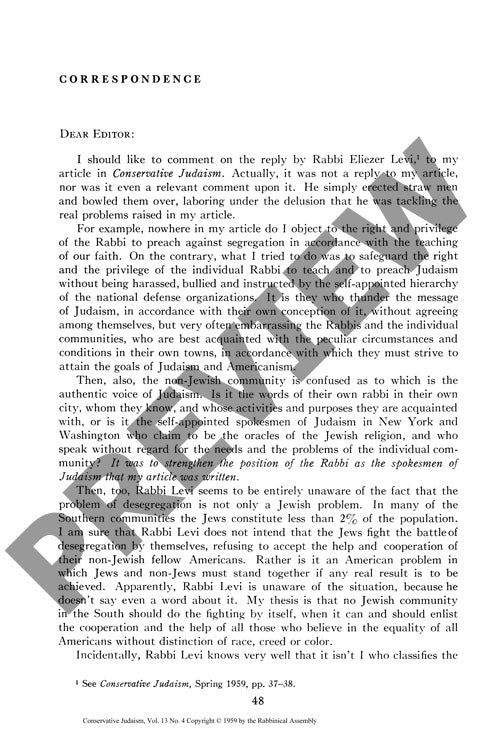Correspondence
Couldn't load pickup availability
This correspondence examines the debate surrounding rabbinical authority and organizational intervention in civil rights advocacy during the desegregation era. The author responds to Rabbi Eliezer Levi's critique, clarifying that the original article aimed to defend individual rabbis' autonomy in addressing segregation within their communities rather than opposing civil rights preaching altogether. The methodology involves analyzing the tension between national Jewish defense organizations and local religious leadership, drawing upon contemporary Southern perspectives and community dynamics. Key findings indicate that desegregation is perceived by many Southerners as a religious rather than political issue, making spiritual leaders more credible advocates than secular organizations like the ADL and NAACP. The study reveals that Jews constitute less than 2% of Southern populations, necessitating interfaith cooperation rather than isolated Jewish activism. The author argues that national organizations often lack understanding of local conditions and may inadvertently undermine community rabbis through prescriptive mandates. The research concludes that effective civil rights advocacy requires respecting individual rabbinical judgment and local circumstances while maintaining interfaith coalitions. The correspondence emphasizes that authentic religious leadership, rather than organizational hierarchy, provides the most legitimate voice for promoting racial equality consistent with Jewish teachings.

More Information
-
Physical Description
-
Publication Information
Published 1959
ISBN
-
Publication Credits
William Malev

